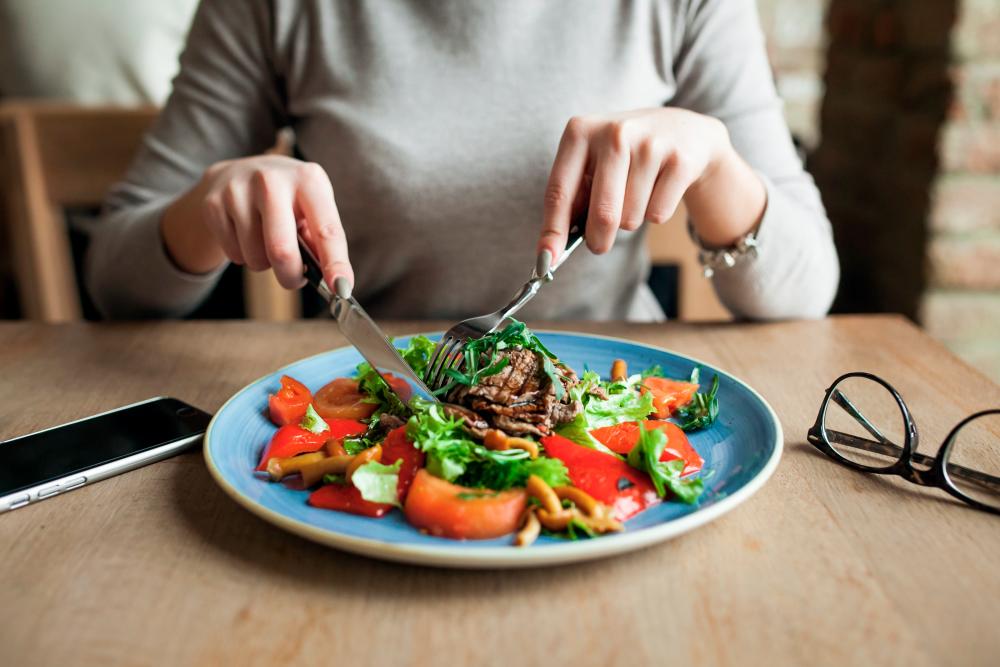IF you are like everyone, there is a list of “good” or “bad” foods programmed in your mind likely even embedded in your subconscious. The good ones (usually healthy) make you feel - well, good, while the bad ones (typically sinfully rich and delicious) leave you rid with guilt and feeling bad about yourself.
We don’t realise this but a lot of our beliefs and habits around food today have been shaped by the diet culture, which is driven by society’s unrealistic expectations of how we should look (thin). Unfortunately, it has created a situation where food can make us feel good and bad about ourselves. To an extent, even a small piece of chocolate after dinner can make us feel guilty.
The truth is there are no good or bad foods. Foods simply differ in nutrition. The problem is, labelling foods good or bad, plays with our emotions. When we believe something is bad and we consume it anyway, guess what it does to the body? The food doesn’t get processed and assimilated properly, it affects the digestive system and in the long term - our overall health.
While the diet culture would like us to believe that we need rules to follow to be healthy and accepted, in reality, we are born with an instinctive knowledge on how to eat for our own body. We know to eat when we are hungry, to stop when we are full, and eat foods that satisfy us. On days when we are not that hungry, we know we don’t have to force ourselves to eat because we’ve been programmed not to miss a meal. Somehow, the scales balance itself and we have days when we’re more hungry than usual. Yet, along the way, rules and restrictions were imposed around food as we grew up i.e. there are good and bad foods; you shouldn’t miss a meal; you have to finish all the food on the plate; or you get dessert if you eat all your vegetables - and we lost this innate ability. We stopped listening to our body’s own wisdom to make food choice, without judgement and that allowed us to truly enjoy what we eat while we are eating, instead of feeling good or bad.
In 1995, two registered dietitians - Evelyn Tribole and Elyse Resch - recognised the detrimental effects of diet culture on our eating habits as well as body image and created Intuitive Eating, a non-diet approach to break the cycle of chronic eating disorders and heal people’s relationship with food. The concept appears quite simple - it encourages us to tune in to our body’s internal cues i.e. hunger, fullness and satisfaction and to reject rules, restrictions and schedules. There are no meal plans and no foods that are off limits. You are given unconditional permission to eat whatever you want without feeling guilty. The heart of this method is to trust your body’s internal hunger and satiety signals to guide you on when, what and how much to eat. Yet, intuitive eating is not as simple as a “hunger-fullness diet”, it encourages us to connect with our body and listen to its needs. Sometimes, this means a salad. Another time, it can be, dessert. This approach is not only centered on food but healing body image issues and exercise. While Intuitive Eating doesn’t pose any strict rules, it is made up of 10 core principles:
1. Reject the diet mentality
2. Honour your hunger Eat when you’re hungry. Don’t wait until you are really hungry, when there is a tendency to overeat.
3. Make peace with food Give yourself unconditional permission to eat. There is no food that is off limits. Restrictions often lead to intense cravings and bingeing.
4. Challenge the Food Police Say NO to thoughts that say you’re good for eating minimal calories or bad because you ate a piece of chocolate cake. This is a critical step in intuitive eating.
5. Respect your fullness Listen to the body signals that tell you that you are no longer hungry and when you are comfortably full. In the middle of a meal, pause and ask yourself how the food tastes and to determine your “hunger-fullness” level. Always leave some space in the stomach to aid digestion.
6. Discover the satisfaction factor Enjoy the pleasure and satisfaction derived from the eating experience i.e. great food and pleasant environment. The pleasure you derive will be a powerful force in helping you feel satisfied and content. This way, you will find that it takes much less food to decide you’ve had enough.
7. Honour your feelings without using food If you tend to deal with issues by eating, find other ways to comfort, nurture, distract and resolve your issues. Emotional eating doesn’t solve the problem, if at all, it can make you feel worse.
8. Respect your body Embrace your genetic blueprint. We are not made from one mould and therefore unrealistic to be expected to fit a certain size. Respect your body so you can feel better about who you are and stop being overly critical about your body shape.
9. Exercise and feel the difference Forget about militant exercise. Just get active and feel the difference. Shift your focus on how it feels to move your body rather than the calorie burning effects of exercise. If you focus on how you feel i.e. energised or good, it can get you motivated to exercise. If your goal is to lose weight, it can be too much effort.
10. Honor your health Make food choices that honor your health and tastebuds while making you feel well. Remember that you don’t have to eat a perfect diet to be healthy. You will not suddenly get nutrient deficiency or gain weight from one snack, one meal or one day of eating. It’s what you eat consistently over time that matters, progress not perfection is what counts.
For more information, visit www.intuitiveeating.org














